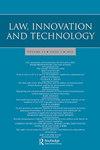人工智能法案中的监管沙盒:调和创新与安全?
Q1 Social Sciences
引用次数: 0
摘要
摘要本文探讨了欧盟人工智能法案草案下的监管沙盒制度。它调查了沙箱制度对在欧盟成员国测试基于人工智能的癌症皮肤检测系统的有用程度。本文的重点是拟议的人工智能监管沙盒制度能否解决创新和安全之间的紧张关系。尽管我们发现沙盒制度有相当大的潜力,但该提案也产生了一些法律问题。它模糊了欧盟和成员国之间的管辖边界,引发了对合法性和平等待遇的担忧,给创新者带来了责任风险,并且没有要求测试对象的知情同意。为了解决这些问题,本文建议为沙盒制度提供更有针对性的法律基础,该制度的灵感来自传统的检测机制,如医疗器械的临床调查。本文章由计算机程序翻译,如有差异,请以英文原文为准。
Regulatory sandboxes in the AI Act: reconciling innovation and safety?
ABSTRACT This paper explores the regulatory sandbox regime under the EU’s draft Artificial Intelligence (AI) Act. It investigates how useful the sandbox regime is for testing an AI-based skin cancer detection systems in an EU member state. The paper focuses on whether the proposed AI regulatory sandbox regime can resolve tensions between innovation and safety. Although we find considerable potential for the sandbox regime, the proposal also creates several legal issues. It blurs jurisdictional boundaries between the EU and member states, raises concerns of legality and equal treatment, creates liability risks for innovators, and fails to require informed consent from testing subjects. To address these problems, the paper suggests adopting a more targeted legal basis for the sandbox regime that takes inspiration from conventional testing mechanisms such as clinical investigations for medical devices.
求助全文
通过发布文献求助,成功后即可免费获取论文全文。
去求助
来源期刊

Law, Innovation and Technology
Social Sciences-Law
CiteScore
4.50
自引率
0.00%
发文量
18
期刊介绍:
Stem cell research, cloning, GMOs ... How do regulations affect such emerging technologies? What impact do new technologies have on law? And can we rely on technology itself as a regulatory tool? The meeting of law and technology is rapidly becoming an increasingly significant (and controversial) topic. Law, Innovation and Technology is, however, the only journal to engage fully with it, setting an innovative and distinctive agenda for lawyers, ethicists and policy makers. Spanning ICTs, biotechnologies, nanotechnologies, neurotechnologies, robotics and AI, it offers a unique forum for the highest level of reflection on this essential area.
 求助内容:
求助内容: 应助结果提醒方式:
应助结果提醒方式:


